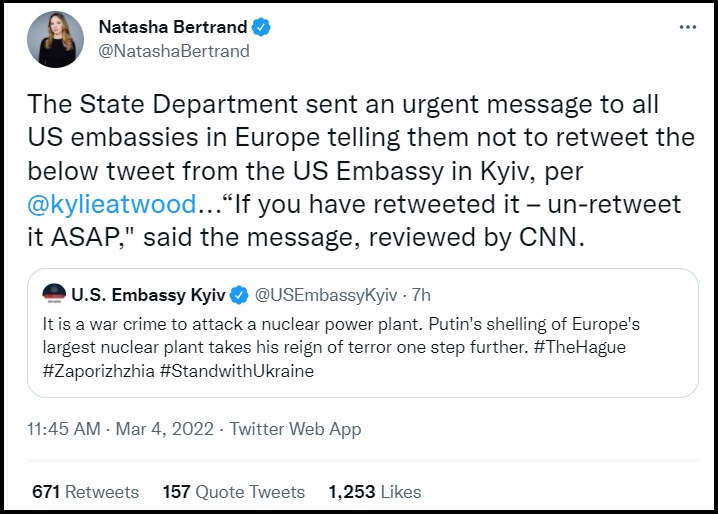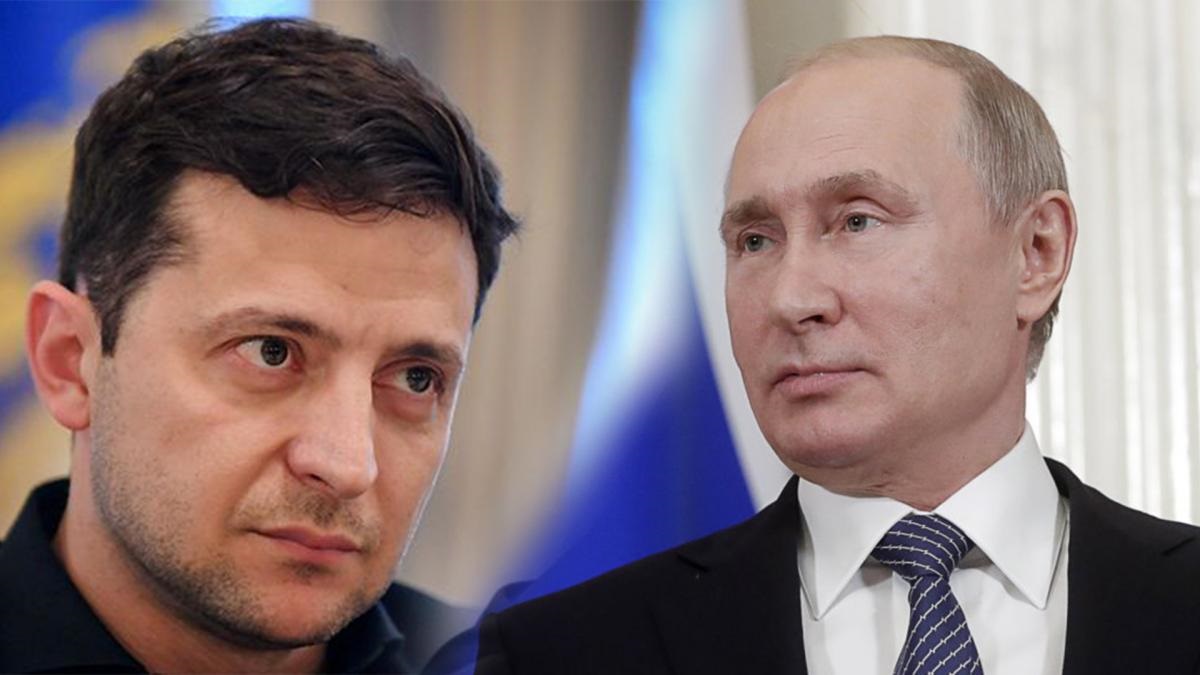Sundance reporting for Conservative Treehouse
The coordinated propaganda campaign designed to sway western opinion over Ukraine has reached dangerous proportions.
 Last night the Ukrainian government, in close coordination with the U.S. State Department, tried to establish a position for NATO intervention based on false stories of a nuclear power plant meltdown (Zaporizhzhia) in the southeastern Ukraine city of Enerhodar.
Last night the Ukrainian government, in close coordination with the U.S. State Department, tried to establish a position for NATO intervention based on false stories of a nuclear power plant meltdown (Zaporizhzhia) in the southeastern Ukraine city of Enerhodar.
Ukrainian President Volodymyr Zelenskyy appeared on television overnight claiming NATO needed to get involved or a catastrophe far greater than the Chernobyl accident was imminent. “You know the word Chernobyl,” Zelenskyy said with maximum drama for impact.
Almost immediately, the U.S. State Dept then began promoting the crisis, “It is a war crime to attack a nuclear power plant. Putin’s shelling of Europe’s largest nuclear plant takes his reign of terror one step further,” the message from the U.S. Embassy in Kyiv claimed, and the war machine published a phone call between Joe Biden and Zelenskyy over the issue.
However, in a clear exhibition of how Ukraine propaganda is now extreme and desperate, everything about the claim was false. This morning, in an effort to save face and hide the intent of their propaganda, the U.S. State Department began trying to cover themselves, as evidenced by CNN narrative engineer Natasha Bertrand.

Setting aside for a moment the latest example of CNN/CNNi being the official state media for the U.S. State Dept, propaganda can backfire when the claims are too outrageous. The State Dept is now doing damage control using their CNN public relations unit.
The reality of the situation at the Zaporizhzhia nuclear plant was far less alarming than all of the spin from the Ukraine government and the U.S. State Department.
Reports indicated Ukraine defense forces fired RPG’s from the administrative building of the plant toward Russian soldiers. The Russians returned fire toward the building, eliminated the Ukraine provocateurs, and took control over the plant. There was only one reactor working at the time, and no threat of radiation was ever present during the incident.
KYIV, Ukraine (AP) — Russian troops Friday seized the biggest nuclear power plant in Europe after a middle-of-the-night attack that set it on fire and briefly raised worldwide fears of a catastrophe in the most chilling turn in Moscow’s invasion of Ukraine yet.
Firefighters put out the blaze, and no radiation was released, U.N. and Ukrainian officials said, as Russian forces pressed on with their week-old offensive on multiple fronts and the number of refugees fleeing the country topped 1.2 million.
[…] In the atttack on the Zaporizhzhia nuclear plant in the southeastern city of Enerhodar, the chief of the U.N.’s International Atomic Energy Agency, Rafael Mariano Grossi, said a Russian “projectile” hit a training center, not any of its six reactors.
[…] Authorities said that Russian troops had taken control of the overall site but that the plant staff continued to run it. Only one reactor was operating, Grossi said in the aftermath of the attack.
Two people were injured in the fire, Grossi said. Ukraine’s state nuclear plant operator Enerhoatom said three Ukrainian soldiers were killed and two wounded.
In the wake of the attack, Zelenskyy appealed again to the West to enforce a no-fly zone over his country. But NATO Secretary-General Jens Stoltenberg ruled out that possibility, citing the risk of a much wider war in Europe. He said that to enforce a no-fly zone, NATO planes would have to shoot down Russian aircraft.
“We understand the desperation, but we also believe that if we did that, we would end up with something that could end in a full-fledged war in Europe,” Stoltenberg said.
The U.N. Security Council scheduled an emergency meeting Friday on the plant attack.
Russian forces, meanwhile, pressed their offensive in the southern part of the country. Severing Ukraine’s access to the Black Sea and the Sea of Azov would deal a severe blow to its economy and could worsen an already dire humanitarian situation.
A round of talks between Russia and Ukraine yielded a tentative agreement Thursday to set up safe corridors to evacuate citizens and deliver food and medicine. But the necessary details still had to be worked out. (read more)

